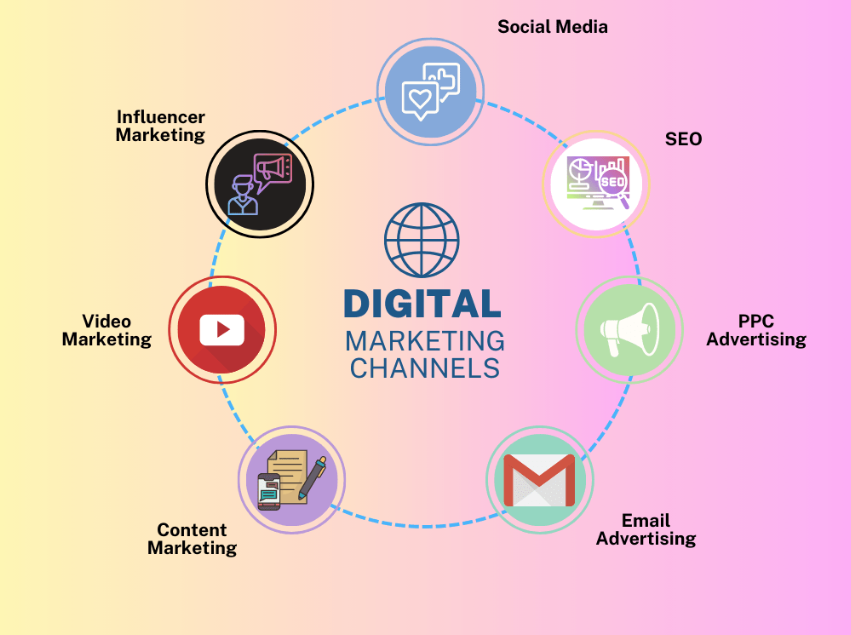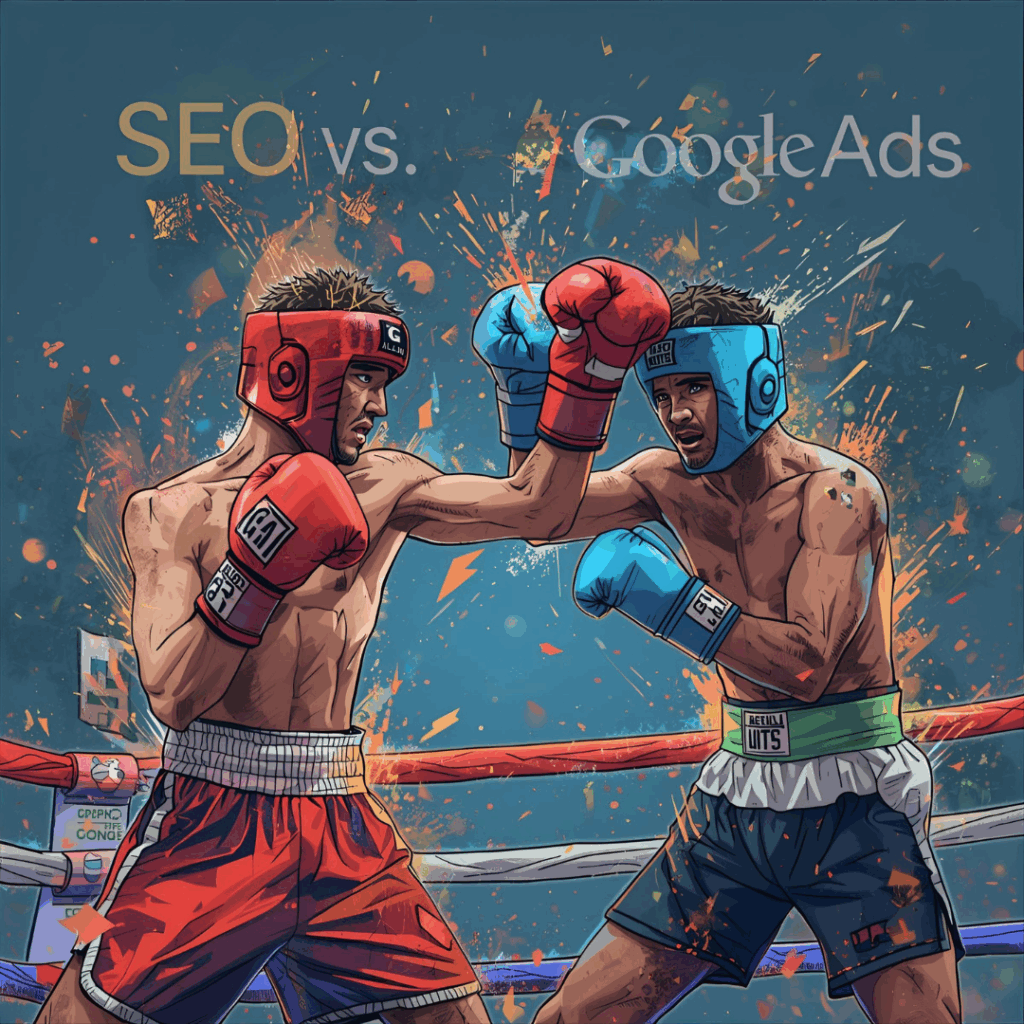The Future Of Online Marketing Part 2 – Social Media
Businesses, let’s put this as plainly as possible: Social Media is a thing. It exists and if you want people to be aware that you exist then you need to be on it. If you disagree with this idea then welcome to the beginning of the end if you had any plans to exist well into the future.
It took Facebook only 8 short years to end up with a 7th of the entire planet’s population on its platform and in the not so distant future it looks set to crack the 2 billion active monthly users mark should trending continue as it steadily has since its inception, contrary to all predictions of imminent doom. The data doesn’t lie.
To put that into even starker context, Facebook (although the largest) is (according to Wikipedia) only one of around 200 prominent social media platforms around the world without accounting for smaller scale sites/apps & yet to be had ideas.
If you’re still not convinced, then try listening to (and familiarizing yourself with) Dave Carroll explaining why “Your brand is nothing but the sum of the conversations being had about it”, or Jerry Kane explaining that “Social Media doesn’t exist, it’s just the internet doing what it was designed to do.”
If your business exists then you’re involved in social media whether you like it or not.
So now that we’ve go that out of the way, let’s get into where this very obviously valuable avenue might be headed and where the opportunity might be for savvy businesses and marketers.
I thought the easiest way to do this would be to break it down into a few main factors, starting with the fact that…
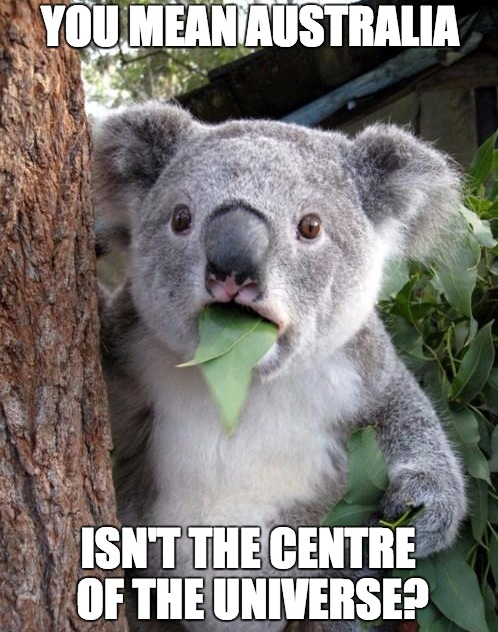
- Global tech brands will not predominantly be Western and neither will your customers
We’re entering the Asian century, so when you think about social media platforms like WeChat or companies like TenCent it makes sense to expect a large cultural shift in social media over the coming decades, however the coming changes to social media in this sense are also technologically driven.
This is one of my favourite talks of all time, particularly the part around 12 minutes & 7 seconds. Despite the talk being very uplifting, it poses the (paraphrased) question “What will these billions of new voices sound like? And what will they want?”
More and more people are connected to the internet every single day all over the world. New online markets are emerging at a staggering rate as technology progression and deployment speeds up in hitherto unconnected places. There are currently just under 3.2 billion internet users in the world out of a potential 7.3 billion. Think about how transformative connecting the other 4 billion could be!
As a business, that idea should excite the hell out of you. Billions of potential new customers? Next level potential for spreading brand awareness? This increasingly connected world is an increasingly large opportunity for you and social media is the tool via which you can plug in and begin to expand your thinking.
Of course this sort of shift will not help all businesses, but the result could be seismic for those with potentially international products or services.
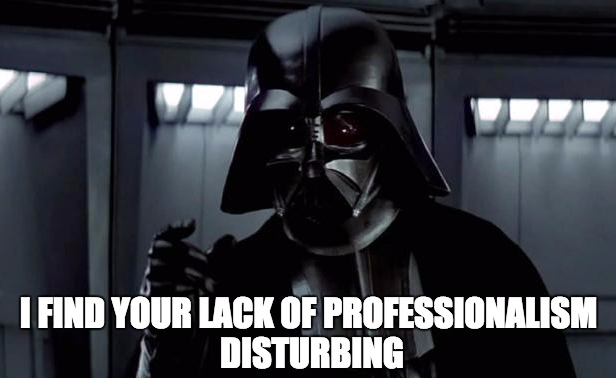
- Content will become more professional
Currently, the level of amateur content output from businesses is appalling and although there could be some arguments made for the potential for these ads to go viral, it rarely results in a good business outcome and is gambling with your reputation. The reason for this is that online output is simply not being taken as seriously as other forms of advertising such as Television, radio or print and marketing budgets are often heavily geared towards more traditional methods.
This is a huge mistake on the part of business given how far online advertising outstrips all of these mediums combined in terms of potential reach.
Although this does create an opportunity for savvy businesses to take advantage and be seen to be ahead of the curve, it won’t last forever.
The benefits of the burgeoning and dynamic world of content marketing online cannot be ignored and even the most stubborn skeptics are starting to come around to the benefits of paying this form of advertising the level of attention it deserves.
My prediction would be that there is no “eureka” moment where everyone realizes at once that content marketing is great and jumps aboard, so there will always be a smaller group of early adopters who reap the benefits over everyone else, but give it 2-5 years and some level of content marketing will be as staple a part of any marketing campaign as newsletters are today.
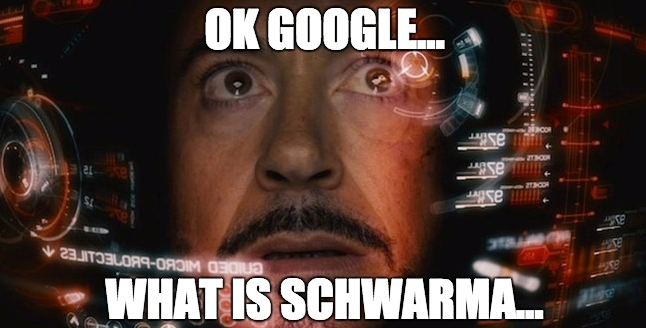
- Offline & Online will merge (into Augmented Reality)
This is the big one. Personally I’ve been touting AR as the next big shift in online behaviour for quite a few years now, but you’re really going to see it start to pick up in the next couple of years.
To put it very simply, AR melds the digital world into the real world via a viewing device. Currently this would primarily be your phone, but as wearable tech becomes more prominent, something along the lines of Google Glass (even if not Google Glass itself) will be what takes it to the next level.
It currently ranges in usefulness from this video showing an interactive Bert & Ernie from Sesame Street for the kids, to hugely popular AR games like Ingress, or super practical uses such as instant language translation and finding your car.
But without a doubt, this video from way back when Google Glass was first gearing up for launch in 2012 gives the best example of how Augmented Reality might change your life.
The immediate benefit here for marketers should be pretty obvious, with a whole new world of digital space for advertising, but the real benefit will lie in when you are able to trigger ads. This takes needs based advertising from simply targeting potential customers with those needs, to real-time immediate needs based targeting. The potential conversion rate for something like this is a no brainer.
But to get back to the point of this whole conversation, Augmented Reality and Social Media are natural bedfellows. People already post a lot of content via social media about their daily lives, but when you can move the digital world into that space and add a more real-time (likely even in progess) element to that content, this interaction with potential customers will be fundamentally transformed and hugelybeneficial to marketers.
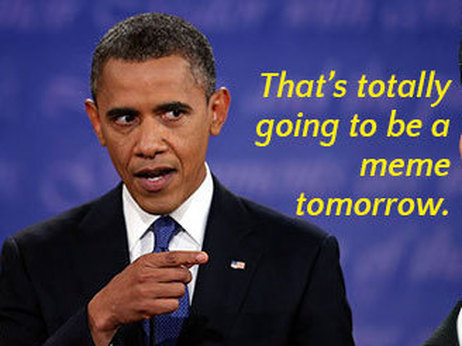
- Social Media will start to influence public life
If you want to get an idea of how revolutionary social media could be for something as seemingly institutional as government process, you need to see this TED Talk on “Coding a better government.”
Social Media, once a cute way to throw sheep at friends or force your favourite song on them upon viewing your MySpace profile, has yielded mountains of behavioural data with which everyone from marketers, to governments and even developers can start to not only build a much more accurate picture of the people they need or hope to interact with, but can innovate social co-ordination and communication with.
This can often be ruined by improper use of or a lack of understanding on that data (which is why most people regardless of their gender or sexual persuasion may have wondered why facebook thinks they want to date “hot Russian women”), but for those able to read between the lines, the possibilities are endless.
Need a leaky pipe fixed? Crowdsource it in real time based on who’s in your area. Having trouble with a business decision? I’m sure there will one day be a social app for that. There are even apps with which politicians in some countries can get real-time feedback on the will of the people which I’m sure would translate very well into customer feedback applications on the direction of your company, a product line, or the perceived image your business currently has in the public space.
Exciting stuff!
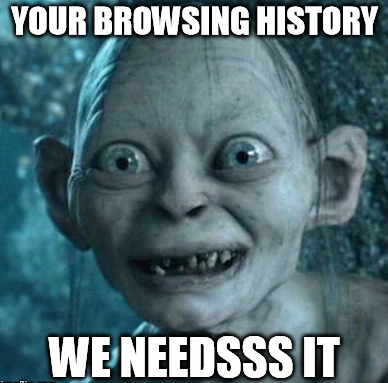
- The behavioural/technology loop
Along with the action that can be taken in the real world on the sort of data mentioned above, this data and the activity it inspires can actually feed back into social platforms. Social Media is strongly influencing offline social behaviour, which in turn produces online social behaviour, which produces data, which produces changes in social media platforms based on the data it produced via its own influence on that behaviour.
Sound confusing? Let’s try an analogy and then connect it to marketing.
a) Chat is introduced.
b) The sudden need to differentiate between something funny and something that makes you literally laugh out loud is born.
c) LOL becomes a thing.
d) Chat (& by this time social media) responds and LOL emoticons become a thing.
e) People tire of LOL.
d) “Haha” overtakes LOL as the most often used indication that one is amused. (Seriously, there’s a study facebook did on it here)
e) Marketers either writing ad copy or running a page for a business need to adapt their language if they don’t want to seem “lame”.
f) People tire of “Haha” and so on…
This is obviously a very simplified take on events, but keep the context in mind. You’re advertising in people’s perceived personal space and seeming out of place or out of date can be a death warrant for any advertising campaign.
It’s very important to take the time to pay attention to the latest behavioural statistics via social media.
And finally…
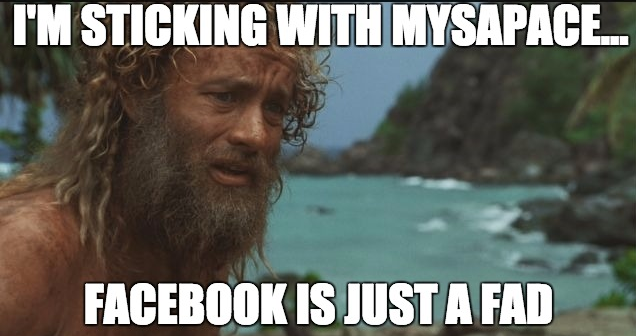
- Expect the unexpected
Educated guesses are educated guesses. Too many people take the theoretical ramblings and musings of so called (and real) experts as gospel.
The fact of the matter is that 12 years ago MySpace was the only social platform worth worrying about and marketers were finding it pretty counter-intuitive. If you were able to travel back to that time now and describe the behemoth that Facebook has become along with its functionality, even if they believed you their brains would explode.
The only thing you can 100% count on is that social media will continue to evolve rapidly and that if you were to travel forward in time to about 5 years from now you may barely recognize it.
There is only one surefire way to stay on top of it: PAY ATTENTION.
Every new development is documented somewhere and something as simple as a good 30-45 minutes of Googling on the topic each week should at the very least ensure that any major developments don’t pass you by until it’s too late.
But that’s enough from me for today, my fingertips are bruised.
Next week, we take a look at the future of SEO!

Are you ready to grow your business?
We write about a variety of topics in the digital industry.


